If a pothole damages your car, Fort Worth says to file a claim. Those who do regret it.
Our Reality Check stories aim to hold those in power to account. Got a story idea? RealityCheck@star-telegram.com.
Dawn Leonard was driving to Kroger when she saw what she described as a “break in the road,” a section where the pavement had separated.
It was July 2023, and she was driving about 30 mph on Timberland Boulevard in far north Fort Worth. With cars driving in the other lane, she had nowhere to swerve and no choice but to drive over the damaged portion of the street.
“My front tire hit it and I was like, ‘Oh god, that was a pretty bad bump,’” Leonard said.
It wasn’t until a couple days later that Leonard’s car began making an “awful noise,” she said, and she took it to a dealership to find out that the wheel hub was cracked.
The repair cost about $1,200. Leonard filed a claim with the city of Fort Worth, along with pictures of the damaged road and receipts from the dealership. She asked the city to reimburse her for the repairs.
“Almost instantly, I got a denial,” she said.
The denial made Leonard wonder what her taxes are really paying for.
“I pay taxes to drive on roads that are not going to cause damage to my car,” Leonard said. “Cars are expensive as is, and then to have someone basically just slap you in the face and say, ‘We’re not paying for your damages’ — I didn’t ask for this.”
North Texas drivers are used to the aggravation of hitting bumps, cracks and dips in roads. But some of those impacts are more than just an annoyance.
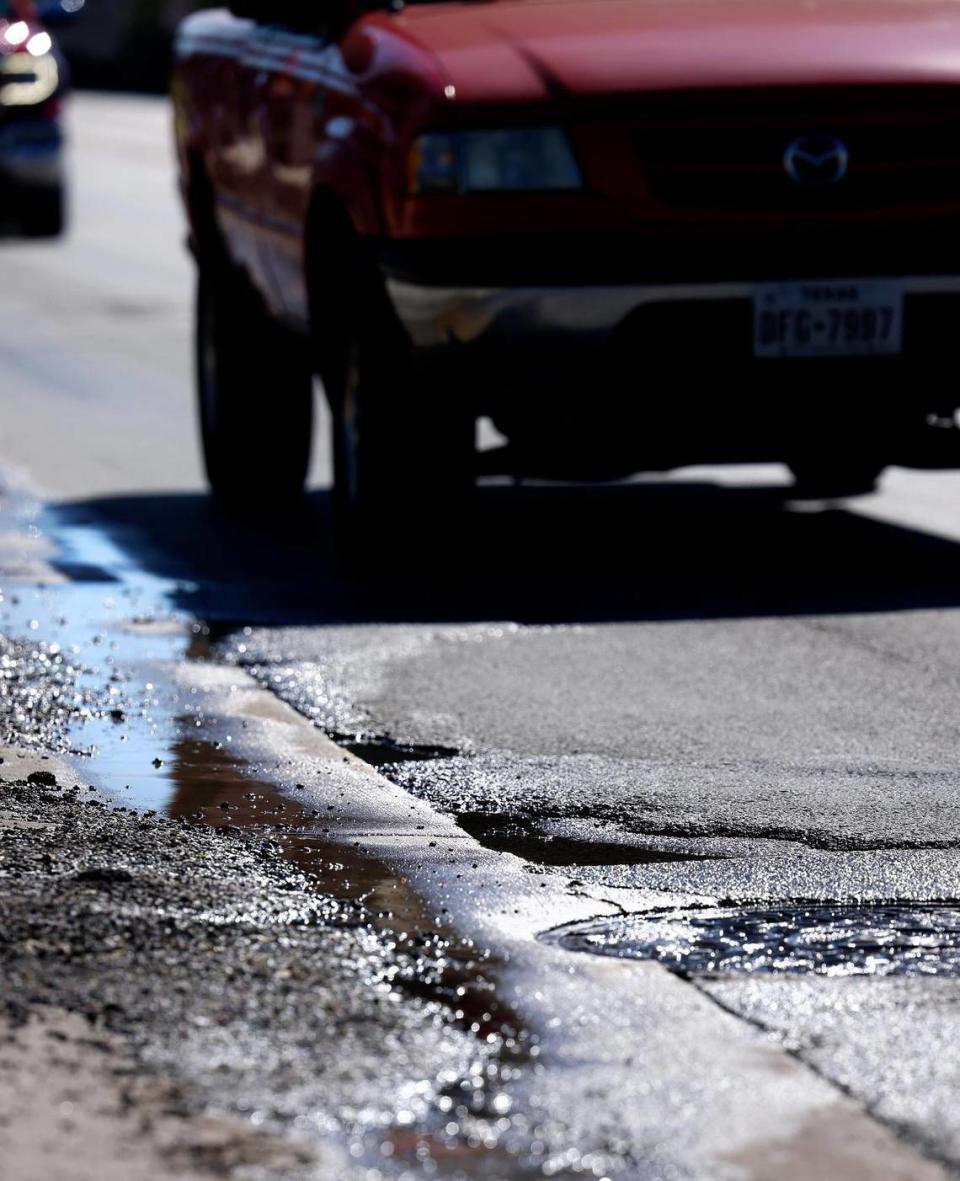
In the last three years, at least 149 people have filed claims against the city of Fort Worth for popped tires, mangled rims or bent axles caused by potholes or similar road problems, according to documents that the Star-Telegram obtained through a public information request. All 149 of those claims have been denied. The city, according to the records, hasn’t paid a dime to any of those drivers.
Such denials aren’t unique to Fort Worth.
That’s because, under Texas law, municipalities are typically not responsible for vehicle damage caused by poor road conditions. Even though Texas municipalities oversee road maintenance, there are only a few situations where cities are legally liable for damage caused by driving on those roads. And the same rules apply to the highways operated by the Texas Department of Transportation.
Rob Henry, a personal injury attorney in Fort Worth, said this law fits with the state of Texas’ practice of limiting liability for individuals and governments.
“It doesn’t add any incentives for municipalities and local governments to maintain the roads,” Henry said. “When it comes down to it, it gives them an out.”
The numbers
The road damage claims filed in Fort Worth ranged from $85 to $3,595, according to the records obtained by the Star-Telegram that included incidents reported from December 2020 to December 2023.
At least three of those claims included injuries in addition to vehicle damage.
One driver wrote on her claim that the impact with a pothole broke her axle, which caused her to lose control and crash into a parked vehicle. She was left with bruising.
Another driver lost control of a pickup after hitting a pothole and crashed head-on into a barrier, according to a claim form. The crash left the driver with arm and back pain, and the passenger with cheek pain.
In another case, a driver and a passenger wrote that they sought medical care after a pothole broke their car’s frame and buckled the wheels and axle.
In the range of repair costs, Emily Beisel’s claim was among the largest.
In January 2022, Beisel was driving home to Oklahoma from the Fort Worth Stock Show and Rodeo. As she was heading toward the highway, towing her horse trailer, she saw a pothole around a bend in the road.
“I slowed way down trying to avoid it, but I caught the rear axle of my trailer,” she said. “It was a freaking cliff, it wasn’t a pothole.”
The impact jerked the trailer around and left one trailer tire sticking out at a 20- to 30-degree angle, Beisel said.
The trailer ended up needing a new tire and axle, which Beisel paid for herself. It was a financial hit of about $3,000, according to her claim form, and it also left her out of work for a while as she waited for repairs.
“Any money that I’d won at the rodeo, I spent on repairing the trailer,” she said.
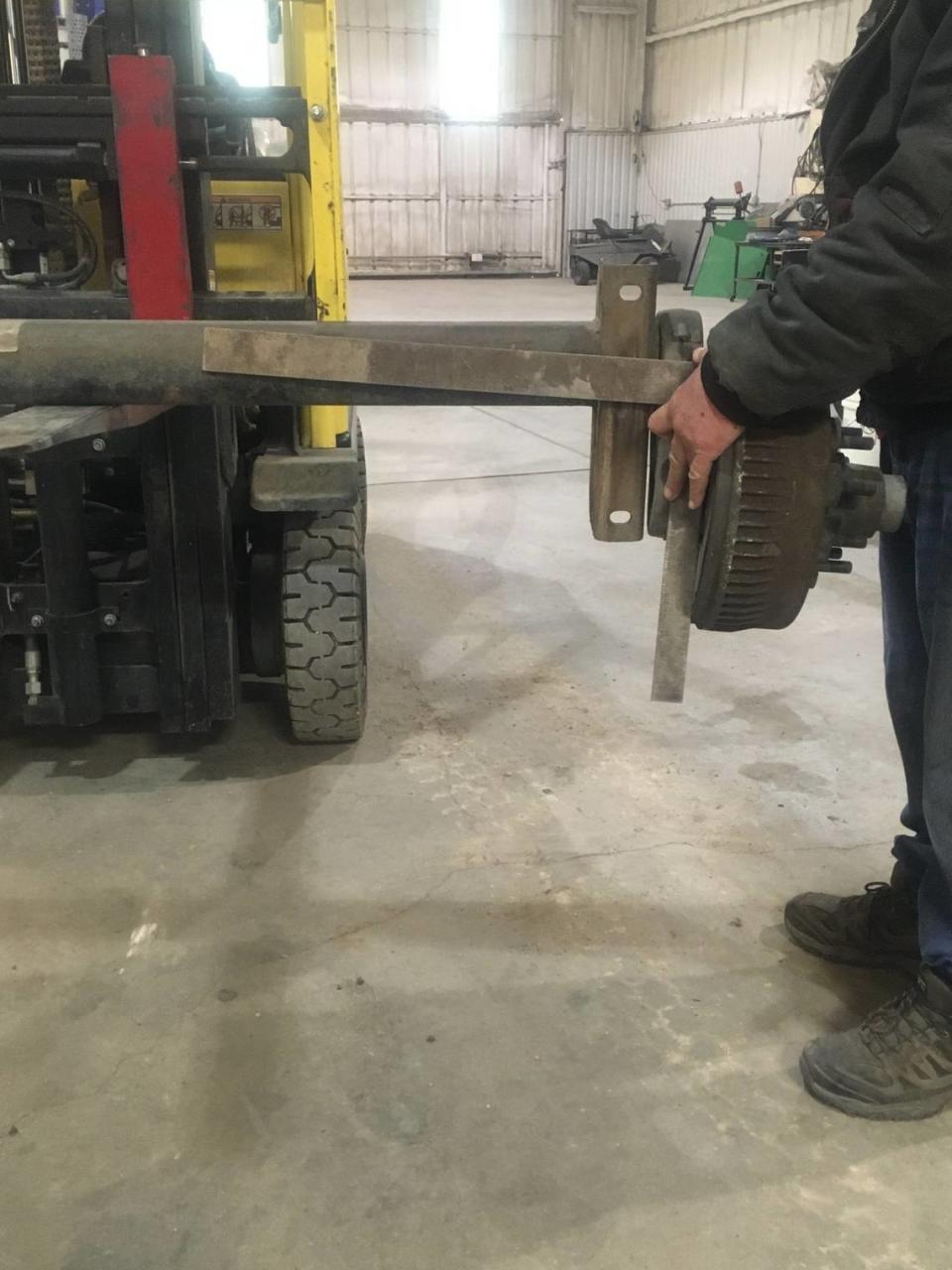
Anthony Gonzales said he might’ve put his claim through his insurance, if he’d known that the city wouldn’t reimburse him.
Gonzales was driving home in June 2023 when his vehicle ran over a pothole on Long Avenue in northwest Fort Worth. When Gonzales got home, he checked the front tires and found “marble sized bumps,” according to his claim form.
The damage meant that Gonzales had to buy two new tires out of pocket for $1,000. When he talked to city representatives about what to do, he was told to file a claim, along with pictures and receipts.
He did and, two months later, he got a letter from the city.
“Based upon the information available to me, I do not feel that the City of Fort Worth can be held liable for any damages resulting from this incident and therefore, I must respectfully deny payment of your claim,” wrote an adjuster in the city’s risk management division.
Several people who spoke with the Star-Telegram, including Gonzales, said they wish the city of Fort Worth would’ve been transparent about the likelihood of denial, before residents took the time to gather their evidence and file a claim.
“I don’t think that’s right,” Gonzales said. “They told me, ‘Hey, give us pictures, give us proof, give us receipts.’ Why ask for all this if you’re not going to reimburse me a percentage? Why ask me to go through all the trouble?”
‘Ping-ponged’ around
For Deborah Villicana, the process of filing a claim — only to be denied — added extra frustration to an already inconvenient situation.
Villicana was one of several people who hit a loosened manhole cover on a neighborhood street in early 2023. It was March 1, which Villicana remembers because it was her birthday. She was driving home from work in her two-month-old Jeep.
When she ran over the dislodged manhole cover, it punctured one of her Jeep’s tires. It would cost $300 to replace, but Villicana was lucky compared to some others.
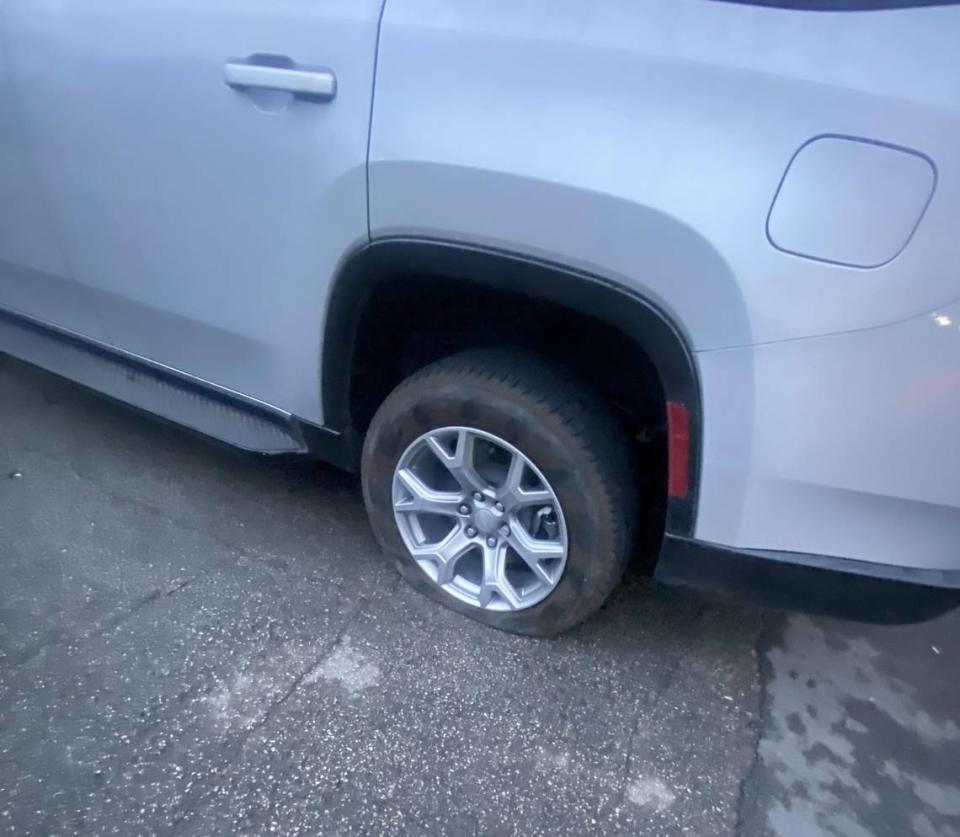
Jennifer Metoyer, who also hit the loose manhole cover that day, was driving a sedan. Her car sustained more than $2,000 in damage.
Both women filed claims with the city.
Villicana went back and forth with city staff, who implied that the natural gas distributor Atmos might be to blame for the dislodged manhole cover, since the utility was laying new lines in that neighborhood. Villicana got in touch with Atmos and tried to sort out what might have happened.
A later email from another city staffer, which Villicana shared with the Star-Telegram, showed the city did not actually believe the mishap was caused by Atmos, because the utility had no reason to be accessing a manhole. The email said city crews fixed the manhole cover the day after Villicana reported it.
But, after looking into the situation, the city denied the claims from both Villicana and Metoyer.
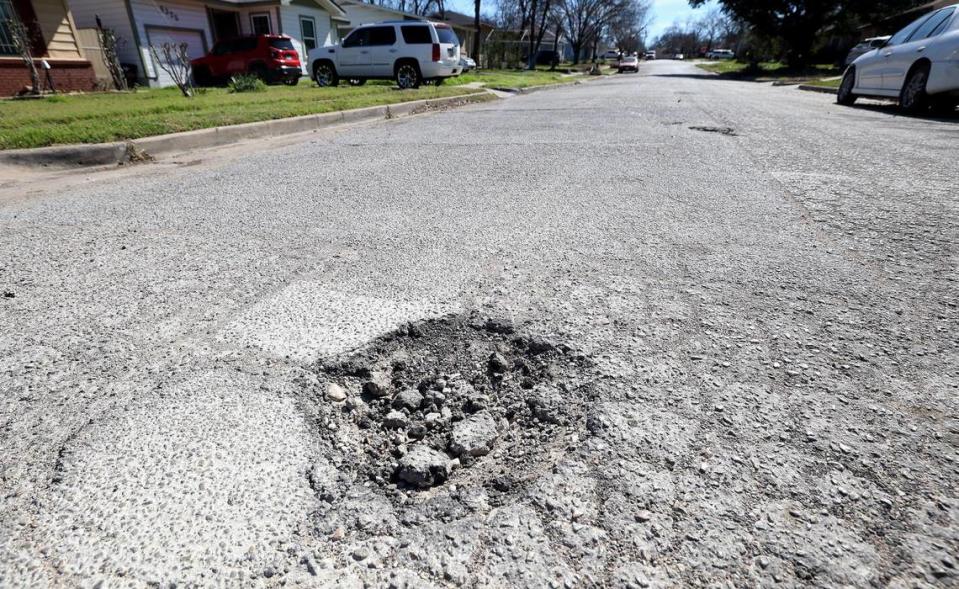
Villicana said she was frustrated that the city gave her the run-around.
“Just be upfront and don’t … give people false hope and don’t make people go through the process when you know you’re not going to pay them back,” Villicana said. “That was probably the most frustrating, the fact that they ping-ponged me around.”
In a statement to the Star-Telegram, a city official said the city doesn’t accept responsibility for damage caused by road conditions, with narrow exceptions.
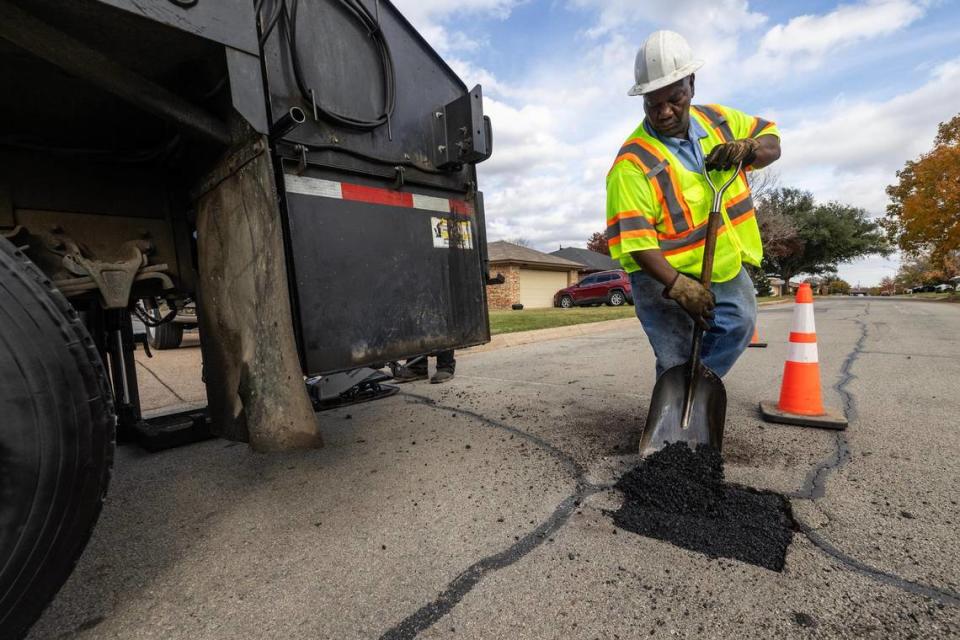
The Star-Telegram repeatedly requested an interview with Fort Worth city staff about the claims process. A city spokesperson declined the interview request and instead sent a statement.
“The City is immune (statutorily not liable) for property damage caused by potholes or other road damage,” the statement said. “The City generally also has immunity for claims of personal injury or death caused by the condition of City streets except for limited circumstances where the City knew of a danger.”
Other cities use the same legal logic, but also aren’t always upfront about the likelihood of reimbursement.
For instance, the city of Dallas’ website also directs residents to file claims. An FAQ on the Dallas website asks what residents should do if they hit a pothole. The response? “You must file a claim with the city of Dallas.” The website doesn’t mention that that claim is likely to be denied.
The Star-Telegram asked to talk with Dallas officials about its road damage liability. City spokesperson Catherine Cuellar replied in an email that, “Neither the Office of Risk Management nor the City Attorney’s Office have availability or interest in an interview.”
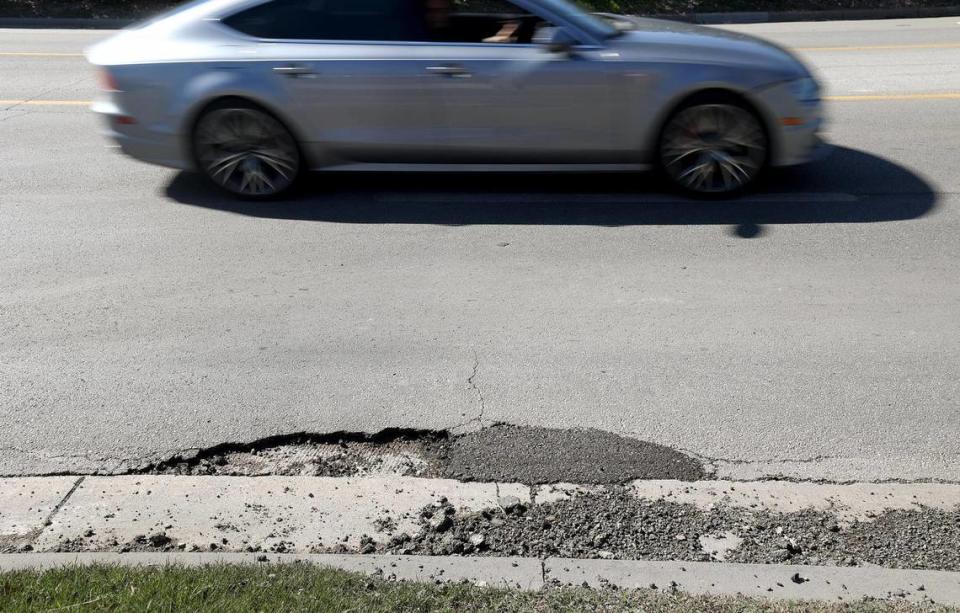
The city of Austin similarly declined the Star-Telegram’s interview request, but confirmed that the city is not typically responsible for road damages. “Pothole damage reimbursement can be achieved through your auto insurance policy, but only when you have the right policies in place,” a city spokesperson said in an email.
The city of Houston’s website is more upfront. That city has an FAQ section that asks if the city will reimburse residents for vehicle damage from city streets.
“No,” the answer reads. “Under State law, the City is not liable for property damage caused by the condition of its streets.”
When are cities liable?
There are a few situations where cities might be legally responsible for hazardous stretches of road.
In order for a city to be liable, a driver must prove that the city definitively knew about a danger and failed to address it. Henry, the attorney in Fort Worth, said that the legal standard essentially requires a “smoking gun,” or tangible proof that a city knew about a hazard ahead of time.
And in Fort Worth, road repair operates on a reporting system with crews that usually respond rapidly. The city aims to repair all reported potholes — which it defines as road damage up to about three feet in diameter — within 48 hours of receiving the report.
The city has four pothole repair trucks, and the crews work quickly. On an early December afternoon, a two-man crew pulled up to small potholes on neighborhood streets, jack-hammering out the holes and shoveling in hot asphalt. Each small pothole took about three minutes, from start to finish, to repair.
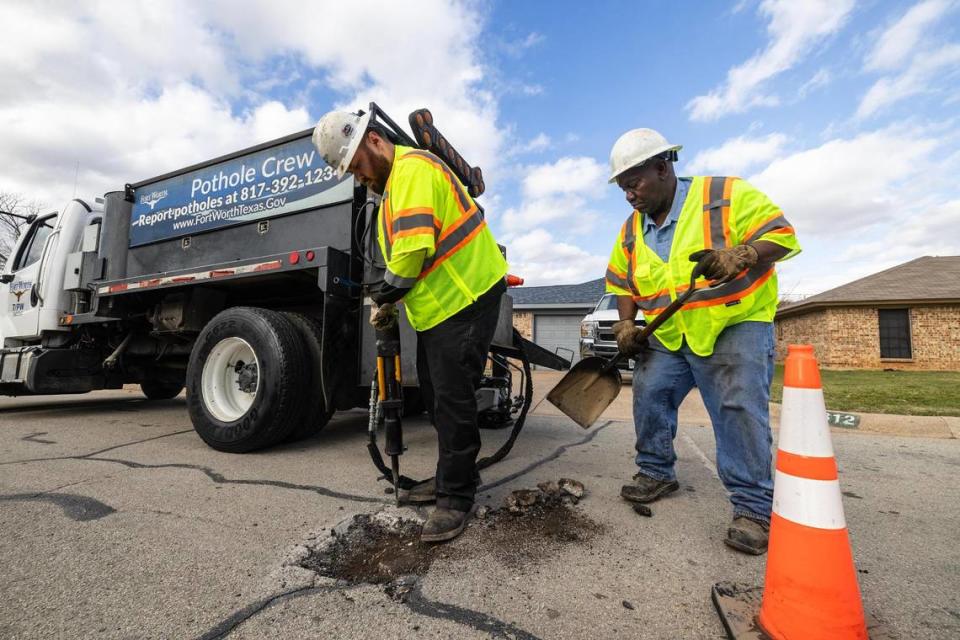
In a one-year period from October 2022 through September 2023, the city repaired 12,433 potholes, according to city data. More than 99% of those potholes — all but six of them — were repaired within 48 hours of a report, according to the data.
A city may also be responsible for damages if a road hazard is unusually severe. But, as a city of Fort Worth spokesperson said in an email statement, the hazard would have to be “pretty extreme” for it to trigger the city’s responsibility.
“Your typical bump, crack, or pothole is not a special defect,” the city statement said.
This setup leaves Texans in a lurch when they run into unexpected road hazards — and unexpected repair costs. Henry, the personal injury attorney, said residents’ best bet is to go through their insurance, although not all policies will cover things like pothole damage.
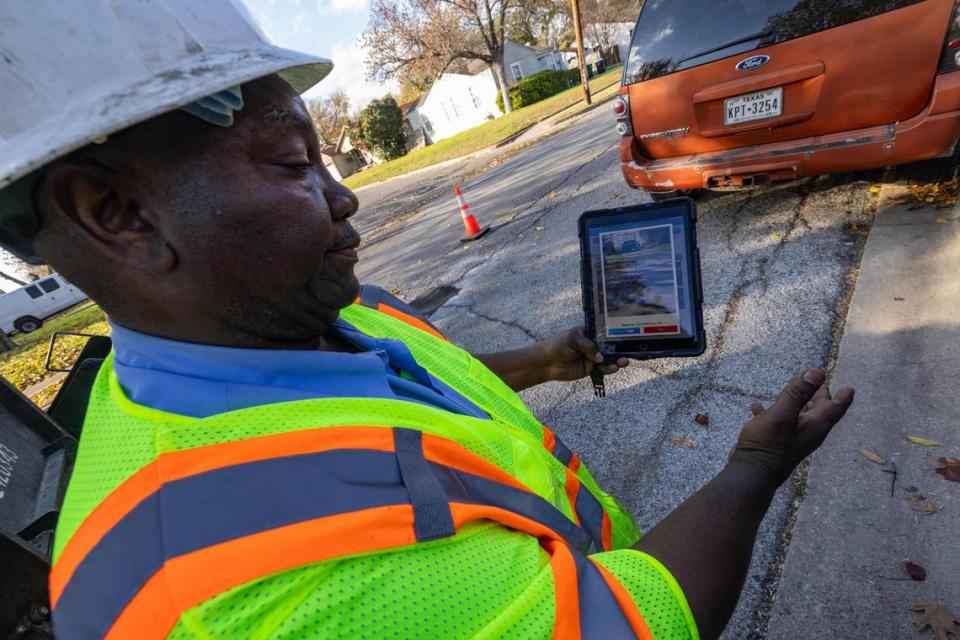
The claims process, in Henry’s opinion, is more of a “courtesy” provided by the city. He said he wouldn’t expect claims to be paid unless a driver files a lawsuit, which wouldn’t be financially worthwhile in many cases.
Residents who filed road damage claims with the city of Fort Worth said they wished the process was different. Several said they felt the city should’ve at least reimbursed them a percentage of the repair costs.
“Our taxes — supposedly — go to pay for all these roads, and then when there’s damage done, there should be a fund set aside for people,” Villicana said.
To Dawn Matyastik — whose $373 claim for a new tire was denied last summer — it feels unfair that residents are made to shoulder the burden of poorly maintained city roads.
“I just feel like it’s the city’s responsibility to keep our roads safe,” Matyastik said. “If they’re not going to take responsibility for it, who is?”


